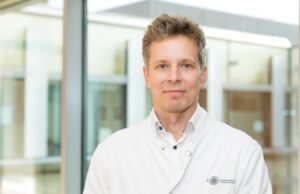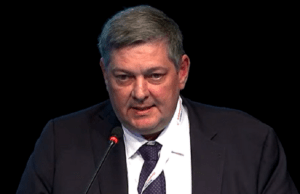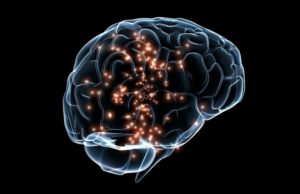Tag: RCT
Newly published PROST trial results find Preset non-inferior to Solitaire in...
Final results from the PROST randomised controlled trial (RCT) have been published in JAMA Neurology and—according to the study’s leading investigators—provide evidence that thrombectomy...
TENSION results show improved functional outcomes and reduced mortality with stroke...
New results from the TENSION study—presented recently at the 15th World Stroke Congress (WSC; 10–12 October, Toronto, Canada) by Götz Thomalla (University Medical Center...
PROST represents “epitome” of scientific rigour, but future trials may follow...
There are multiple components of the PROST randomised controlled trial’s (RCT) design that set it apart from prior studies and make it somewhat unique...
RECOVER trial will provide “thorough understanding” of VNS response in depression...
A new randomised controlled trial (RCT)—the “largest ever” of its kind in the major depressive disorder (MDD) space—will attempt to provide a “thorough understanding”...
Stent-assisted coiling fails to show superiority versus coiling alone in unruptured...
A randomised controlled trial (RCT) involving more than 200 patients has indicated that stent-assisted coiling (SAC) is not superior to coiling alone in unruptured...
Equivalency to clinical practice “varies considerably” across recent carotid intervention trials
The external validity—in other words, the transferability to real-world clinical practice—of contemporary randomised controlled trials (RCTs) investigating carotid artery stenosis interventions “varies considerably”, as...
BAOCHE trial results supporting thrombectomy for basilar artery stroke published in...
Results from the BAOCHE randomised controlled trial (RCT), which found that the addition of thrombectomy to standard medical care within 6–24 hours in basilar...
Self-administered tDCS reduces knee osteoarthritis pain in older adult patients
Home-based, self-administered transcranial direct current stimulation (tDCS) has demonstrated feasibility, acceptability and significant reductions in clinical pain intensity in older adults with knee osteoarthritis,...
NeuroVasc announces first patient treated in clinical trial evaluating novel stent...
NeuroVasc Technologies recently announced that the first patient has been treated in its US investigational device exemption (IDE) clinical study, the ENVI randomised controlled...
INS 2022: Late-breaking research indicates safety of deep brain stimulation in...
Deep brain stimulation (DBS) offers a safe therapy option for reducing chorea in patients with Huntington’s disease, but it remains to be seen whether...
INS 2022: Occipital nerve stimulation shows clinical benefit and safety in...
A randomised controlled trial (RCT) presented at the International Neuromodulation Society (INS) congress (21–26 May 2022, Barcelona, Spain) has demonstrated significant and clinically relevant...
Multiple-modality spinal cord stimulation demonstrates sustained improvement in chronic pain outcomes
A spinal cord stimulation (SCS) system capable of simultaneously delivering multiple treatment modalities has produced a sustained improvement in outcomes in a randomised controlled...
First patient implanted in clinical study assessing hypoglossal nerve stimulation for...
LivaNova has announced the first patient has been implanted as part of an investigational device exemption (IDE) clinical study, dubbed OSPREY (Treating obstructive sleep apnea using...
Nevro announces clinical data reinforcing significant and durable benefits of 10kHz...
Nevro Corporation has announced the results from data presentations at the 25th North American Neuromodulation Society (NANS) annual meeting (13–15 January 2022; Orlando, USA) supporting...
Novel neuromodulation technique could be “gamechanger” in treatment-resistant depression
Stanford accelerated intelligent neuromodulation therapy (SAINT)—a novel, high-dose intermittent theta-burst stimulation (iTBS)—was found to be safe and more effective than sham stimulation in a...
ESMINT 2021: COATING study “badly needed” to assess surface modification of...
This year’s Congress of the European Society of Minimally Invasive Neurological Therapy (ESMINT 2021; 8–10 September, Nice, France and virtual) saw details of the...
CRISP study indicates clinical benefit of non-paraesthesia-based approaches in burst SCS...
The CRISP (Comparison of paraesthesia mapping to anatomic midline-based burst programming strategies) study, published in Neuromodulation: Technology at the Neural Interface, has found that...
Philips enrols first patient in WE-TRUST stroke study to assess new...
Royal Philips has announced that the first patient has been enrolled in the WE-TRUST (Workflow optimisation to reduce time to endovascular reperfusion for ultra-fast...
Stimwave launches post-market peripheral neuropathy pain relief randomised controlled trial
In honour of September Pain Awareness Month, Stimwave has announced the launch of a new randomised clinical trial treating painful peripheral neuropathy, known as...
Placebo-controlled RCTs of spinal cord stimulation are on the rise, but...
Important methodological aspects of clinical trials of spinal cord stimulation (SCS) using a placebo are consistently being poorly reported, says a recent systematic review....
SNIS 2019: Next-generation thrombectomy will be “even more powerful”
Matthew Gounis (Worcester, USA) talks to BLearning at SNIS 2019 (22–25 July, Miami, USA) about the current state of ischaemic stroke therapy. Gounis notes that...
Stimwave announces completion of enrolment for the Tsunami placebo-controlled double-blind randomised...
Stimwave has announced completion of patient enrolment and preliminary results of the first-of-its-kind Tsunami study. The Tsunami placebo-controlled double-blind randomised clinical trial (RCT) is...
Evoke: The first RCT to measure spinal cord activations in response...
The protocol design for a multicentre, prospective, randomised, double-blind study comparing ECAP- (evoked compound action potential) controlled closed-looped with open-loop, fixed output spinal cord...
Randomised trial of Penumbra 3D revascularisation device meets primary endpoints
The Penumbra 3D trial of the company’s 3D revascularisation device has successfully met the primary trial endpoints, demonstrating non-inferiority in both safety and efficacy...
























